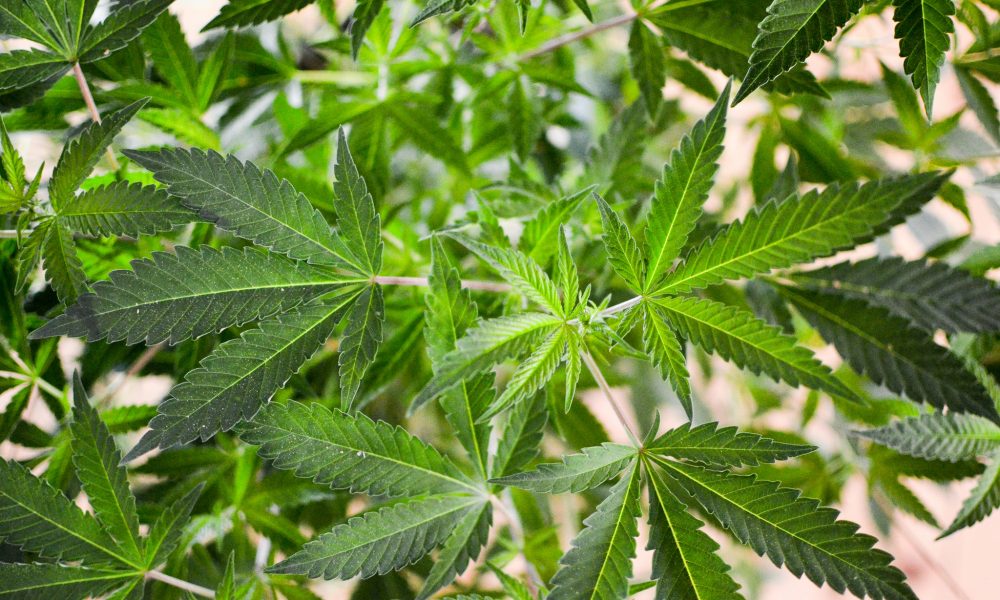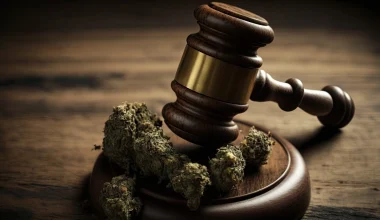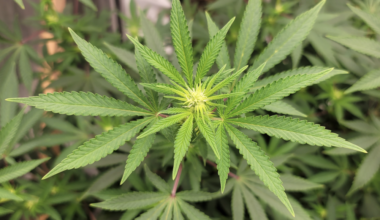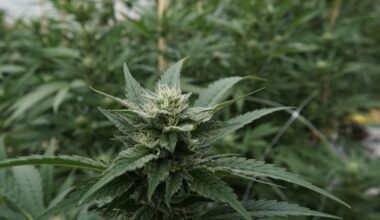South Dakota activists turned in what they say are more than enough valid signatures to place a marijuana legalization initiative on the state’s November ballot.
South Dakotans for Better Marijuana Laws (SDBML) submitted petitions to the secretary of state’s office on Tuesday, the submission deadline, just weeks after sounding the alarm about potentially coming up short as the deadline approached.
A final push in cities across the state apparently proved fruitful, with advocates making up the deficit and then some. The campaign independently verified about 19,250 signatures; they need 16,961 valid submissions to qualify.
Matthew Schweich, campaign director of SDBML, told Marijuana Moment that the “furious final push” to collect the remaining signatures this past month delivered results and they’re confident that the state will clear the measure for the ballot following its review. The secretary of state’s office is expected to make a determination about the signature validity within weeks.
“We are very proud to submit these petitions, and we are extremely thankful to the voters who added their signatures and to the volunteers who helped us finish this petition drive,” Schweich said separately in a press release. “This campaign was a statewide grassroots effort that involved thousands of South Dakotans.”
South Dakota voters already approved legalization during the 2020 election, but the reform was struck down by the state Supreme Court following a challenge supported by the governor’s office.
Following the court ruling, activists decided to take a two-track approach to the policy change in 2022, both working with legislators for a legislative reform while separately collecting signatures for the ballot initiative if lawmakers failed to act.
While they would have preferred lawmakers to enact the policy change, that did not pan out this session. The House rejected a Senate-passed legalization bill in March, effectively leaving it up to activists to get on the ballot again.
Here’s what the campaign’s marijuana legalization ballot initiative would accomplish:
The measure would allow adults 21 and older to purchase and possess up to an ounce of cannabis. They could also grow up to three plants for personal use.
It also lays out civil penalties for violating provisions related to issues such as public consumption or growing more plants than permitted.
Employers would specifically be allowed to continue enforcing workplace drug policy prohibiting cannabis use by workers.
State and local governments could continue to ban marijuana activities made legal under the initiative in buildings “owned, leased, or occupied” by a governmental body.
The measure does not touch on regulatory policies concerning taxing cannabis sales, licensing or equity.
SDBML’s 2020 success at the ballot was overruled by the state Supreme Court as a result of a legal challenge funded by Gov. Kristi Noem’s (R) administration. The court ruled that the measure violated a single-subject rule for ballot initiatives.
“Over the course of this signature drive, our staff had conversations with thousands of South Dakotans from all across the state. Based on our experience, a substantial number of the people who signed our petitions did so primarily because they believe the ballot initiative process must be respected by politicians,” Schweich said. “This petition drive was bigger than just cannabis—it was an opportunity to restore the will of the people.”
To that end, the campaign will now be focusing efforts on defeating a separate constitutional initiative, Amendment C, that would require at least 60 percent of voters to approve a ballot measure, instead of a simple majority. The proposal was placed on the state’s June 7 ballot by an act of the legislature.
Schweich called the proposal a “disgraceful sneak attack on the constitutional ballot initiative rights of the people of South Dakota.”
“Placing this type of constitutional amendment on a primary ballot is completely indefensible,” he said. “Furthermore, the nature of this constitutional amendment is deeply problematic as it will expose the initiative process to increased ligation that could in the end cripple it.”
A Marijuana Interim Study Committee, headed by legislative leaders, was established last year to explore cannabis policy reform, and the panel ultimately recommended that the legislature take up legalization this session. The House-defeated legislation was one of the direct products of that recommendation.
—
Marijuana Moment is already tracking more than 1,000 cannabis, psychedelics and drug policy bills in state legislatures and Congress this year. Patreon supporters pledging at least $25/month get access to our interactive maps, charts and hearing calendar so they don’t miss any developments.![]()
Learn more about our marijuana bill tracker and become a supporter on Patreon to get access.
—
Even if the legislature had enacted the bill, however, the governor would have likely posed a threat. She declined to rule out vetoing the legalization legislation on the day it passed the Senate in February. She also confusingly questioned voter support for the reform despite the fact that they approved it at the polls two years ago.
Noem’s office also recently suggested that the activists behind that voter-approved initiative should pay the administration’s legal fees of the lawsuit that invalidated the will of voters—a proposal that the campaign called “ridiculous.”
While a recent poll found that most South Dakota voters approve of Noem’s job performance overall, just 39 percent approve of her handling of marijuana legalization, with 51 percent disapproving. The governor is up for reelection this year.
Noem has consistently faced criticism from advocates and stakeholders over her early opposition to cannabis reform.
She released an ad ahead of last year’s election urging residents to vote against the legalization initiative that ultimately passed, 54-46 percent.
More recently, however, the governor seems to be trying to associate herself with the implementation of a separate medical cannabis legalization initiative that voters also overwhelmingly approved in 2020, despite having opposed the proposal in the run-up to the election.
After regulators approved rules for the medical marijuana program in September, Noem said her administration “is fully on board to make certain South Dakota continues to implement the most responsible, patient-focused medical cannabis program in the country.”
Noem tried to get the legislature to approve a bill to delay implementation of the medical cannabis program for an additional year, but while it cleared the House, negotiators were unable to reach an agreement with the Senate in conference, delivering a defeat to the governor.
In response, her office started exploring a compromise last year, with one proposal that came out of her administration to decriminalize possession of up to one ounce of cannabis, limit the number of plants that patients could cultivate to three and prohibit people under 21 from qualifying for medical marijuana.
New Jersey Lawmakers File Bills To Restrict Marijuana Use By Police And Other Workers
Photo courtesy of Philip Steffan.
Medical Disclaimer:
The information provided in these blog posts is intended for general informational and educational purposes only. It is not a substitute for professional medical advice, diagnosis, or treatment. Always seek the advice of your physician or other qualified healthcare provider with any questions you may have regarding a medical condition. The use of any information provided in these blog posts is solely at your own risk. The authors and the website do not recommend or endorse any specific products, treatments, or procedures mentioned. Reliance on any information in these blog posts is solely at your own discretion.







